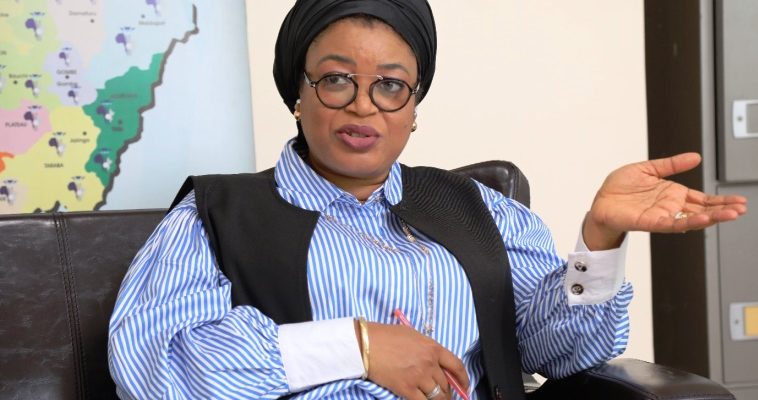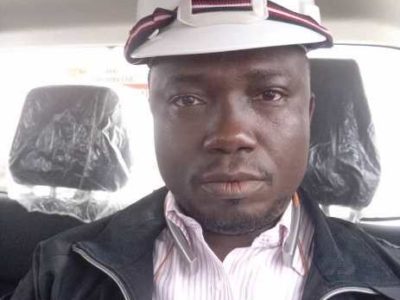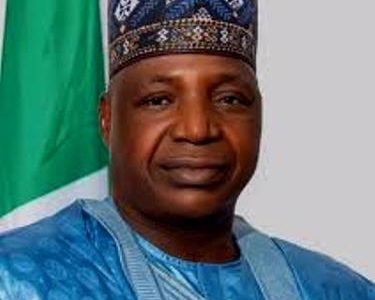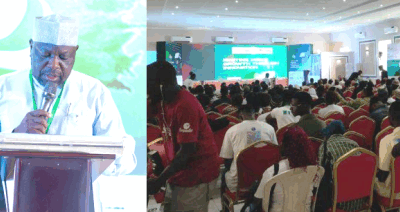Dr. Abimbola Alale is running the last months of her tenure as Managing Director/CEO of the Nigerian Communications Satellite Limited (NIGCOMSAT). In spite of her busy sign-off schedules; she found time to respond to our questions. After eight years of managing one of government’s most complex enterprises, The Nigerian satellite technologist would be leaving behind an entity in search of a new future beyond its early days of dreams and national aspiration to be part of the global of communication satellite industry. NIGCOMSAT is entering its next phase of evolution to be managed outside of sole government’s proprietorship, and become fully commercialized or privatized as a government White Paper has already recommended. Alale was part of NIGCOMSAT’s beginning and has helped to nurture part of those early dreams to reality working closely with China as a major partner. In spite of all the inherent challenges, she is confident that “NIGCOMSAT Ltd is a viable government asset and with the right legislation or friendly policies in place, the company will function very well and will be amongst the foremost government revenue earners.”
She is leaving NIGCOMSAT with over two decades of experience in the space sector beginning with the Nigerian National Space Research and Development Agency (NASRDA) where she was the Assistant Project Manager/Secretary of the Team that championed NigComSat-1 and 1R missions, including the formation of NIGCOMSAT Limited.
“I would love to be noted as someone who has contributed to the greatness of Nigeria through my work in the space sector,” she told IT Edge News even as she expressed confidence in the future of NIGCOMSAT Limited and its subsidiary companies.
Alale is a PhD degree holder of Security & Strategic Studies from Nasarawa State University, Keffi, Nigeria. She also holds a Master degree in Space Studies (MSc) and an MBA degree from the International Space University, Strasbourg-France. Other Certificates were obtained at the Massachuttes Institute of Technology, USA and the Management School, London. Dr. Alale is a Fellow of African Scientific Institute (FASI), Certified Forensic Investigation Professional (CFIP), Member International Academy of Forensics (MIAF), Fellow of Chartered Public Diplomacy and Management (FCPDM). She was a Council Member 2021 of the World Economic Forum for Global Future Council on Space. In 2021, Reset Global People called her one of Africa’s 100 Women CEOs. She is a mother of 10 children, 9 of them are adopted.
How will you sum up your eight years in the public service and specially, your eight years as CEO of NIGCOMSAT – What lesson has it taught you?
My response to this would be that of mixed feelings. As you know, there is no phenomenon without its ups and downs. However, in everything l give thanks to God Almighty. When l reflect on all that has been achieved, starting from a small project office, metamorphosing into an entity that is the cynosure of everyone, I will say l am utmost grateful. If I leave NIGCOMSAT today, I would love to be noted as someone who has contributed to the greatness of Nigeria through my work in the space sector.
RELATED: NIGCOMSAT needs legislative backing to thrive, stop capital flight on foreign satellites – Alale
But let me be quick to correct you, I have spent over twenty-one years in public service and eight years as the Managing Director/Chief Executive Officer of NIGCOMSAT Ltd. I started from the National Space Research and Development Agency (NASRDA). It was at NASRDA that the idea of NIGCOMSAT was birthed. I served as the Secretary of NigComSat-1 satellite project. That first satellite lasted for eighteen months until it was eventually deorbited.
You were in Beijing with us when we signed the replacement satellite in 2009 and in less than three years, we launched NigComSat-1R. NigComSat-1R replaced the deorbited satellite.
I came into office in February 2014 with the end of tenure of the first Managing Director, Engr. Timasaniyu Ahmed-Rufai. By December of the same year, l was confirmed as the substantive Managing Director, thereby given the opportunity to preside over the affairs of the satellite company.
“NigComSat-1R satellite is performing optimally, all that we need is the implementation of “right of first refusal” policy and the enshrinement of local content policy to satellite business, by government.”
In my years as the CEO, I was opportuned to work with a team that helped place NIGCOMSAT Ltd at par with its peers in the satellite communications industry globally. We ensured that we conform to the international best practice in all our business dealings and industry best practice.
So to respond to your enquiry, it was a wonderful experience. A worthwhile experience! I thank the President of the Federal Republic of Nigeria, President Muhammadu Buhari, (GCFR) for giving me the opportunity to serve. I also wish to thank the Honourable Minister of Communications and Digital Economy, Prof. Isa Ali Ibrahim (Pantami); a very passionate, innovative and hard-working member of the Federal Executive Council, for the passion, hard-work, innovation and above all, leadership he has brought to the Ministry. By his efforts, he has changed the entire outlook of ICT in Nigeria, making the digital sector the most relevant to economic sustainability of the nation. It has been a great privilege to work with him as my boss and Honourable Minister.
I want to use this opportunity to also thank the Board, Management and Staff of NIGCOMSAT Ltd, for the support and the challenges we faced together. It has been great working with them.
The lesson learnt here is, with the right team to work with, you will surely achieve greatness.
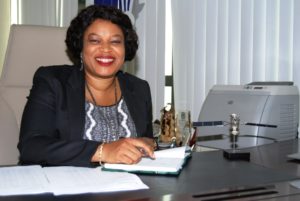
As one who should know, what will your response be to some opinions that the Nigerian communications satellite journey is stuttering and has not yielded the expected goals?
l know we have challenges but the situation is not as you present it. Technically, the NigComSat-1R satellite is performing optimally, all that we need is the implementation of “right of first refusal” policy and the enshrinement of local content policy to satellite business, by government. If the capital flight on satellite services in the country is directed to NIGCOMSAT Ltd, the company would have done better in the revenue generation drive. We provide the same service any other communications satellite company worldwide can provide, but for the issues of backup satellite and policy implementation.
The media has also done very little to create awareness amongst Nigerians, of the existence of the communications satellite and the knowledge that it can serve the country just as other satellites would. Imagine if most government services are being delivered on the NigComSat-1R satellite, or that all VSAT and broadband services to rural areas, public and private spaces are delivered on the NigComSat-1R satellite, where do you presume NIGCOMSAT would have been? The NigComSat-1R satellite is viable and has the capacity to cater to the abovementioned needs.
“If the capital flight on satellite services in the country is directed to NIGCOMSAT Ltd, the company would have done better in the revenue generation drive.”
Presently, the company is on the verge of concluding arrangements for the procurement of a second satellite, a high throughput satellite. This will replace NigComSat-1R as its end-of-life is fast approaching.
NIGCOMSAT’s goals and aspiration is therefore, hinged on good patronage. Nigerians must own this project; it is theirs to use. If NIGCOMSAT Ltd is patronised with the expected revenue coming in, it will have no business going to government cap-in-hand for money.
After NIGCOMSAT Ltd, what next for Nigeria’s first female CEO of a government-owned satellite communications company? Private sector venture or NGO? What were your best moments in those eight years?
I can tell you that there are no immediate plans. I shall decide on what next, subsequently. Presently, l am praying to God to give me good health and grace to face the future. I need to sit still and reflect on all that have transpired in my life in the last twenty-one years or so, then forge ahead.
As for my best in the last eight years, you have been with us all through so this is an opportunity for you to be the judge. Where did we get it right, where did we do wrong, how well did we handle challenges? Above all, I would say that we have tried our best to place NIGCOMSAT Ltd where it is supposed to be placed.
What will be regarded as your toughest moments and your best in those eight years?
The toughest moment was when we deorbited the NigComSat-1 satellite. My best moment would be, when we had it replaced.
Is there a future for NIGCOMSAT Ltd as a publicly own entity or should it be privatised or commercialised as many have advised?
NIGCOMSAT Ltd is a government entity. Government has the prerogative to decide the fate of the company. But frankly speaking, for now, full commercialization with government patronage will make it function well.
As l had mentioned earlier, NIGCOMSAT Ltd is a viable government asset and with the right legislation or friendly policies in place, the company will function very well and will be amongst the foremost government revenue earners. Diversification of government revenue earnings require putting all the necessary tools to work. I am not saying NIGCOMSAT is not a revenue earner presently, but to gain more revenue for government, more has to be done.

